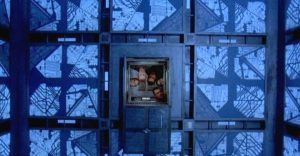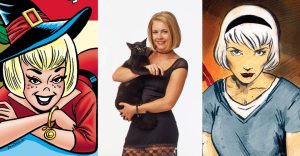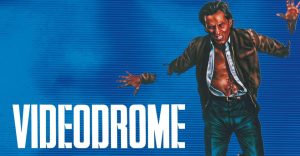The Bernie Mac Show & 9 Other Top Black Sitcoms Of The 90s & 2000s

The 90s and 2000s were the golden age of black sitcoms on television. The FOX Network and UPN produced a lot of these shows, bringing to the public a new consciousness of black lives. At the same time as the explosion of black sitcoms on TV, a new breed of black comedy sketch shows were being produced. In Living Color would precede The Chris Rock Show and Chappelle’s Show.
Many of these shows received worldwide audiences, creating a cultural renaissance for black culture, at the same time as RnB and Hip Hop reached peak success globally. By the late 2000s, the golden age came to an end, leaving a wide gap for the stories of black lives.
10 The Steve Harvey Show

The Steve Harvey Show (1996), although incredibly funny, was not well marketed when it aired. In fact, Chris Rock made an unpopular joke on his show about how the show saw no audiences weekly. The show was, nevertheless, hilarious. Featuring two kings of comedy: Steve Harvey and Cedric The Entertainer, the sitcom revolved around a former renowned funk musician turned teacher. Steve Harvey played a music teacher, constantly irritated by his students, who loved him too much to quit harassing him. Cedric The Entertainer also played his best friend, co-worker, and roommate, ready to fight with Steve for the most inane reasons.
9 The Parkers

The Parkers (1999) was a light-hearted sitcom about a mother-daughter duo going to the same college. The sitcom, which began as a spin-off of UPN’s Moesha, is notable for its positive portrayal of the black mother-daughter relationship. Nikki, played by Mo’Nique, re-enrolls in college to get a better life for herself and her daughter, Kim.
Kim, on the other hand, struggles with her education and ultimately fails. Keeping in tune with its light-hearted positivity, Kim finds success as a fashion designer. Nikki’s recurring gag of chasing after Professor Oglevee works, culminating in their marriage in the series finale.
8 Living Single

Before Friends, there was Living Single. Living Single (1993) launched Queen Latifah’s acting career and solidified Kim Fields’ name as a key player in US TV history. Created by Yvette Lee Bowser, it portrayed black female friendships during America’s dot-com boom. The series four women in their twenties chasing career success at a time when the glass ceiling for women was shattering. Bowser’s Living Single focused on her characters’ personal growth while portraying black women on-screen with braids, dreads, wigs, relaxed hair, afros, and more. The show tackled issues facing African Americans in 90s America and featured some wonderful homages to African American history.
7 Martin

Martin (1992) was so popular during its run, that Martin Lawrence achieved top billing over Will Smith in Bad Boys. The show was one of the earliest black TV sitcoms to feature recurring characters played for laughs. Many of these characters, such as Jerome or Shenehneh, were played for laughs, making it one of the most popular black sitcoms ever. The show was often shown back-to-back with Living Single, because of both shows’ thematic similarities: young friends living and working together. The show would also launch the careers of Tichina Arnold (Everybody Hates Chris) and Tisha Campbell (My Wife and Kids).
6 The Bernie Mac Show

The Bernie Mac Show (2001) came to life after Bernie Mac complained that he was the only King of Comedy not to have or star in his own show. The show is a continuation of some of Mac’s most famous and funniest stand-up routines about taking care of his sister’s kids.
It follows Mac learning to live with the children, after living alone with his wife for many years. It was popular for Mac’s direct address to America, where he gave impassioned speeches about his family life and its accompanying frustrations. Nonetheless, the show presented an affluent, happy black family at a time when George Bush’s war on drugs was still predominantly targeting black communities.
5 Family Matters

Family Matters (1989) was a hugely popular show on ABC following the middle-class Winslow family. The show’s breakout character, Steve Urkel, would push the show into huge popularity worldwide. Family Matters reached massive success because it was a show about average Americans. Sitcoms like Golden Girls and The Cosby Show represented the popularity of average American representation on TV at the time. The representation of black identity in the US at the time, however, was abysmal, with shows like Cops (1989) presenting black men as dangerous hooligans. Indeed, the family patriarch, Carl, in a reversal of black stereotypes, was a cop.
4 My Wife and Kids

My Wife and Kids (2001) follows a tradition of movies and TV shows created by The Wayans Family. After the run of The Wayans Brothers (1995 – 1999), My Wife And Kids came next. The 2000s heavily favored affluence, and this trend did not escape black sitcoms. The Kyles are an upper-middle-class family struggling with fickle issues.
The series targeted audiences from all spheres of life. As a result, it hardly dealt with serious issues. When it did deal with serious issues, it was very light-hearted and non-consequential. The show is a serious departure from Damon Wayans’ angry political days as Homie D Clown.
3 Everybody Hates Chris

Everybody Hates Chris (2005) was originally developed by FOX. It was produced by UPN and, later, The CW. The series departed from many black sitcoms of the 2000s by portraying the dark realities of class and race in the US. Chris Rock narrates his life as a teenager in 1980s Brooklyn. With a classic combination of Tyler Crews and Tichina Arnold as both parents, the show follows a weary father working two or more jobs to provide for his family. Meanwhile, Chris faces constant racism and bullying at school, as his mother works desperately to keep her family together in a community torn apart by governmental neglect and police brutality.
2 The Fresh Prince of Bel-Air

The Fresh Prince of Bel-Air (1990) is one of the world’s most recognized shows in sitcom history. The show alternates refreshingly between light-hearted fun and serious sociocultural issues. Although the Banks are extremely wealthy – even having a butler – the sitcom did not shy away from discussing the impact of racism in the family’s lives. The central tension within the show was a working-class Will living with an upper-class family. Consequently, the series did not shy away from portraying the realities of being working-class, and the responsibility of people who achieve success in life to help those behind them.
1 Girlfriends

Girlfriends suffered the most tragic fate of sitcoms. Thanks to the Hollywood writers’ strike of ’07 – ’08, the show would not receive a proper series finale, leaving fans still seeking closure today. Girlfriends was a first in its representation of black women. The sitcom portrayed four very different black women, with contradicting personalities, values, beliefs, and even careers. The show was real. It gave the girlfriends real flaws, but also serious strengths. It proved the inner complexity of black women, an idea that was in stark contrast to Hollywood’s history of using the “mammy” and “jezebel” stereotypes to portray black women.

















